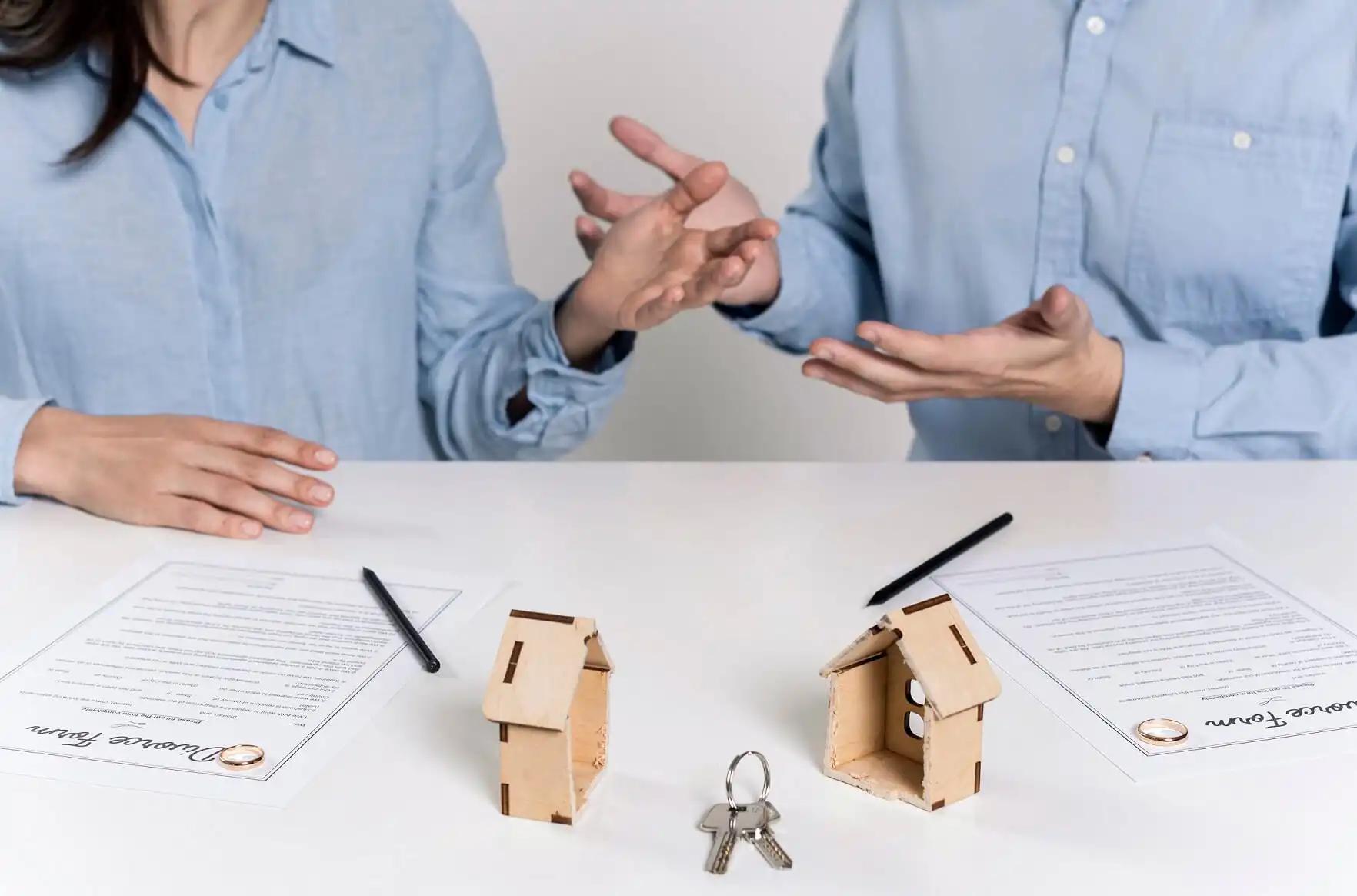Have you been overlooking issues in your relationship? You might be convinced it is worth continuing, not being sure of what is to come later on. Recognizing red flags in your partner isn’t easy, especially during romantic stages. It is normal as feelings can impede our ability to be logical. However, ignoring red flags can cause strain on you and your relationship.
Here is a list of red flags in a relationship that people miss most often:
- Lack of communication
- Having low self-esteem
- An unwillingness to compromise
- Running away from difficult discussions
- Lack of trust in a relationship and frequent lying
What are Red Flags in a Relationship?
A deal breaker is a personality trait that damages a partnership. Some are easy to identify, while others are subtle and more difficult to spot. For example, you may begin to notice that your partner is not keeping up with their hygiene as much as they used to. That's fine- they're just comfortable around you. However, there is a limit to everything, and when it’s crossed, that’s when a trait becomes a red flag.
There also might be things that you were fine with when you started dating that you cannot stand now. Moreover, as both of you grow and change, you or your partner might acquire certain habits or views that the other person finds alarming. It is crucial to pay attention to such long-term relationship red flags, as they may not only ruin your relationship but also cause you to question your life goals. It’s important to know your goals and boundaries and not allow your significant other to jeopardize these. What things are you willing to compromise on?
Silent Red Flags in a Relationship
Hidden problems are the ones that are hard to spot behind your or your partner’s words and actions. Such issues may be hidden deliberately or because one is just oblivious to them. Ignoring subtle hints that a person is not right for you can lead you into a cycle of depression or anxiety. Many of us are willing to look past certain problems in relationships. We give it time and assume it will be a one-time ordeal. Most of the time, though, it never is. What are silent red flags you should look out for?
-
Lack of Communication

Being able to communicate with your significant other instills confidence in yourself and
your partnership. It is common for partners to have different communication styles and feelings about things, which affects the frequency and efficiency of their conversations about things important to them. Signs of bad communication in a relationship include passive aggressiveness, frequent arguments, stonewalling, and defensiveness.
If there is a lack of conversation between you and your partner, or you are unable to understand each other’s communication styles, this is a sign that the relationship is in trouble. Poor communication in a relationship brings about loneliness, dissatisfaction, and decreased intimacy. An inability or unwillingness to communicate is an underlying reason for marriages and relationships ending or someone getting seriously hurt.
-
Having a Low Self-Esteem

When one is dealing with low self-esteem in a relationship, they are often in a defense mode. It is common for such people to take things to heart, overreact, or become apathetic and cold. They may believe that any negative event, however minor it is, may cause their partner to see their faults and end the relationship. Any small rejection becomes a gut punch and may make the person critical and bitter towards their partner. This can sabotage a potentially good relationship.
If your relationship is causing low self-esteem, you might have a partner who is diminishing you but is a person with low self-esteem themselves. You may start to wonder, "Am I the issue?", feel you are not good enough for your partner, and, perhaps, you too may start to become defensive. This can easily create a vicious cycle for the two of you where none is satisfied with the other and themselves.
-
An Unwillingness to Compromise
Love is a compromise. When you agree to be with someone, you become a team. Some things will probably have to change in order to keep you and your partner satisfied, which is why compromising in a relationship is essential. When someone isn’t willing to listen to your point of view, they probably aren’t taking your opinion seriously. Compromise significantly predicts satisfaction in relationships and plays a role in long-term success. Despite this, it is important to distinguish when it is good to compromise and when it is not. In certain cases, people are incompatible in their views and may both suffer when trying to adopt the views of another person or reach the middle ground.
-
Running Away from Difficult Discussions

Any type of confrontation is hard, and it leaves us vulnerable. Most people do not like
conflict and tend to avoid serious conversations. Putting off tough talks can cause more negative feelings to build up and cause the relationship to crumble. This may also be a sign that your partner is not interested in a long-term relationship and prefers the relative comfort they have now over building something that is going to last.
Difficult discussions are not necessarily conflicts or disputes – these may be talks where you have a chance to voice your concerns and reach a consensus. The format, however, depends on what works best for the two of you, and if one is overly confrontational or emotional, it may be the reason why building a dialogue is hard.
-
Lack of Trust in a Relationship and Frequent Lying

` Being lied to by someone you love hurts. Whether it’s intentional or not, lying signals that there are issues in a relationship. For instance, lying by omission is when your partner doesn’t actually lie – they just don’t communicate the whole truth, which doesn’t make it any better than straightforward lies. Lying by omission may be more difficult to comprehend and discuss. For example, your partner is going to a work party but leaves out the fact that you were invited. They may be lying to you to avoid conflict, to protect themselves, or to spare your feelings. It shows a lack of respect towards you and can lead to you losing trust, which is an essential part of any relationship.
Toxic Relationship Red Flags
There is no single toxic relationship meaning, but in a nutshell, these are mentally, emotionally, and spiritually draining relationships. Some signs of a toxic relationship include overly controlling behavior and jealousy, problems in your sex life, or a constant feeling of exhaustion. Because of this, spending time with your partner can be unenjoyable, even if you still love them. If you suspect you are in a toxic relationship, look for the following signs for confirmation:
-
Overly Controlling Behavior and Jealousy

While romantic relationships are really special, they should not be the only relationships you ever have. You may be a parent, a sibling, or a friend. These titles should not go away because of your significant other. If a person is trying to limit the time you spend alone or with friends, this may cause you to feel isolated. Isolation can be very dangerous. You'll soon find you have no one to confide in.
If your partner is overly controlling, this may come from jealousy or a lack of trust. Jealousy is a natural emotion to have, but continuous and constant jealous behavior can lead your relationship to erode quickly. Jealousy in a relationship is most often an indication of potential abuse in the future, especially when it’s excessive.
-
Physical, Emotional, or Mental Abuse

Abuse comes from a desire to hold power over someone and control their behaviors. It often happens gradually and may go unnoticed if your partner hasn’t shown other signs of toxic behavior for a while. Remember that all types of abuse are major red flags in a relationship. If your partner is not physical, it doesn’t mean they aren’t abusive.
Signs of emotional abuse or mental abuse include verbal attacks or threats, insults or humiliation, and restricting your freedom. They also cover unpredictable mood swings, especially with angry outbursts. When you don't know what will set a person off, you start feeling like you have to walk on eggshells around them. Even when an abusive relationship ends, the signs of abuse might have a presence in your future relationships.
-
Bad Relationships with Family or Friends
Everybody has good and bad relationships in their lives. However, one should be able to explain why things ended badly with the other person. Does your partner have friends they can talk to or family members that they can disclose personal information to? If you see your partner dealing with a family problem or family rejection for no real reason, this is a red flag. Whatever they did to push their family away, they might try to do the same thing when it comes to your family.
In certain cases, the family or friends in question might be the problem. If your partner is in contact with them and they treat both you and your partner badly, it is a red flag. Why don’t they stop communicating? What is the value of such relationships? And most importantly, how will it influence yours in the long run?
-
Social Media Addiction

People addicted to social media seek validation by receiving likes and comments. They spend time comparing themselves and their relationships to others who "have it better." This often stems from low self-esteem and a desire for attention that take over a person’s life. Social media is distracting from doing things involved with nurturing a relationship, such as verbal communication and making time.
Living with a person who’s addicted to social media is tiring and might cause constant irritation and fights. A lot of people also feel insecure and jealous when their partner spends more time and effort maintaining online connections and their image instead of their romantic relationship. If your partner does not listen to reason and prefers their online life over yours together, it is a sign that the relationship might not last.
-
Alcohol or Cigarette Abuse
Is smoking causing relationship problems? It often does, especially when only one of you is a smoker. Along with the reproductive and lung health issues, the smell of smoke can cause serious problems if you’re not a smoker. It is especially dangerous if you have children, as secondhand smoke causes ear infections and respiratory diseases. If your partner is not willing to try and kick the habit to save your relationship and health, what are their priorities?
When it comes to alcohol, having a drink here and there is not a big deal. However, excessive drinking is dangerous for your health, your relationship, and most aspects of the drinker’s life. How alcoholism affects relationships? The common issues that arise from it are a lack of communication, decreased sexual performance, financial instability, and different types of abuse. Alcoholism can be treated, and it takes time and effort from both partners. If you are the only one trying, it is highly unlikely to work.
-
Having a Lot of Solo Plans, Never Talking About the Future
Being in a relationship for many people means that you will have a companion for the rest of your life. If you are considering a long-term relationship, it is good to talk about future plans with your partner. Discussing what life will look like together down the road can provide direction and a sense of security. If they talk more about solo plans instead, you may begin to feel alone. When your partner doesn’t want to talk about the relationship, it may be because they see a future that doesn’t include you.
-
Problems in Your Sexual Relationship

Sexual problems in a relationship often occur as a result of other issues, such as those with communication or spending time together. Usually, one partner will want to have sex more frequently than the other. It is natural, unlike the dead bedroom situation. Many issues stem from the lack of discussion around sex, needs, and desires. Communicating about what feels right and what you prefer should be common practice.
When in a romantic relationship, these topics should not be taboo. Sex issues in a relationship can ruin intimacy and your own self-esteem. If one of the partners doesn’t understand why the other has a low sex drive, they might think the cause is a lack of love or attraction. This is an easy way to ruin trust and cause the breakdown of the relationship.
-
Narcissism
It can be easy to be fooled by a narcissist. They can seem like loving, successful, and fun people who, in reality, lack empathy or don’t care much for others. There are different narcissistic relationship patterns to look out for:
- Narcissists may only be taking from you without giving anything back. They may stick with you when the emotions are high, and they feel great. Once you face some problems, they may be done and gone.
- Some narcissists may be overly romantic and love-bombing. They can be passionate about wanting you, but they may just be playing into their own desires without considering your needs. They may also seem like your perfect match at first until you start seeing that this is just a façade and their real personality is way different.
- Narcissists are often manipulative and overly controlling. They begin to think that they own you, which can be dangerous and lead to isolation from family and friends. Being in a relationship with a narcissist can also make you feel like you are losing touch with yourself. Your needs will stop being met, and their needs will always come first.
Despite the popular belief, narcissists will not necessarily act like you would expect abusers to. They may actually show a lot of love and care but do it for the wrong reasons. You will see it from how well they respect your boundaries, take "no" as an answer, or listen to your wants and needs without telling you what those are.
-
Spending All of Their Time with You
Obsessiveness can be a red flag, especially when you are the one they are obsessing over. New relationships can be exciting, and you're having fun spending time with the person you love. However, if you notice your lover has no independent passions and only enjoys spending time with you, this will not allow either of you to grow as people. Spending too much time together can also lead to you not being able to find happiness on your own. It is important to be an independent person, not an attachment to someone else, no matter if it's your parent, friend, or partner. If you find that they take up too much of your time, talk to them about your boundaries.
-
Dwelling on Past Relationships
Spending large amounts of time thinking about the past does more harm than good, as it impedes your ability to move forward. It's hard to know if your partner has really moved on from their ex when they seem to be constantly thinking about them. Talking about past relationships is normal as it may help you and your partner understand each other better. It does become a red flag when it’s done in excess. Are they still in love with an ex? Do they expect you to be like them? When they can’t stop thinking about the past, it may be time for you to move forward without them.
-
Negative Financial Behavior

Some impulse spending might be harmless, but when this turns into compulsive behavior, it can lead to financial strain. Discrepancies about money are a leading cause of divorce in America. Signs of bad money management can include taking out too many loans, having too many credit cards, and spending money for no apparent reason. Bad spending habits become more apparent when they or you as a family or couple cannot meet the basic needs.
Financial planning is important – you need to understand how both of you see your future together and what financial contributions are necessary for it. If there is a major mismatch, or your partner’s behavior is harmful, your future together is compromised.
-
Lack of Self-Care
It’s natural to become more comfortable with your partner further into relationships. However, being comfortable and ignoring basic self-care are different things. Some self-care examples include hygiene, healthcare, exercise, and a proper diet. When a person stops paying attention to one or all of these, it is a huge red flag.
Why is self-care important? It makes a person healthy and reduces the chances of getting strokes, heart diseases, and various types of cancer. It can also eliminate anxiety, stress, and depression, improving the overall quality of life of a person.
If your partner is not taking care of themselves, there may be various reasons why, like a lack of basic knowledge about self-care, which may be easy to address with a simple conversation. However, they may also not care enough, be in denial, or suppress some negative emotions. The issue is manageable but takes time and a lot of effort, which you shouldn't be putting in alone.
-
Love Bombing and Showering You with Gifts

Is saying I love you too soon a red flag? It often is, but it's important to interpret it properly. If it is just too soon for you to say it back, although you've been together for some time, it is fine. They might be more romantic or put less weight into these words than you do. If your partner is rushing into a relationship with you despite barely knowing you, this is when you need to be on alert. They might start love bombing you in order to take control of your life and manipulate you.
To recognize love bombing, look out for these signs:
- They want all of your time to themselves. They make you feel guilty for wanting to or spending time with others or not answering their texts when you’re clearly busy.
- They are “extra” with everything. Expensive gifts, too many words of praise, oversharing, etc., making it look like you’re the center of their universe.
- Your boundaries are an offense to them. Such people find any type of rejection outrageous and a threat to your relationship.
- They “punish” you with silence or anger. This may happen when you did something that goes against their view of “normality,” which, however, falls within yours.
- There is an idealization-mistreatment rollercoaster. They may treat you like you are perfection, and when something goes south, switch to verbally or physically abusing you.
These are the signs your relationship is not healthy, and so might be the person you're in it with.
-
Constantly Feeling Exhausted
Some form of exhaustion from a relationship may happen at certain stages of dating or marriage. However, when it is constant or prolonged, it’s not healthy.
The common signs of an emotionally drained relationship are:
- You’re always dealing with your partner’s problems and have no time for yourself.
- They overreact or come up with dramatic situations for you to deal with.
- You feel tired of relationships, which makes you feel more tired of work, friends, and other aspects of your life.
- You desperately crave some alone time and are physically exhausted all the time.
Whether you're assuming the role of the caretaker and a so-called "emotional dumpster" or your partner is pushing it on you, there is a limit to how much you can take. You should have boundaries and remember that you have emotions, issues, and needs too.
-
Trying to Change Personality of Partner
Changing behavior in relationships is natural as you grow and adjust to each other. Besides, major life events can influence one or both of you and cause some change. Overall, there will likely be irritating traits or habits that you and your partner can have a reasonable discussion about to reach a compromise. It is a part of a relationship and healthy communication.
However, if your partner is actively molding you into a person you are not, it is a red flag. This may:
- Lead to abusive behavior
- Damage your self-esteem
- Put a toll on your sex life and intimacy
- Cause depression
Trying to change someone in a relationship drastically defies the whole purpose of dating a person you’ve chosen. If they want you to be “like their ex” or make you fit their image of an ideal partner, do they really want YOU?
How to Approach Red Flags in a Relationship
Red flags are not something you need to just accept and move on. If you want to be a healthy person in a healthy relationship:
- Stop trying to love the red flags out of people
Love may conquer all in Disney movies, but it doesn’t in real life. Relationships are based on mutual respect, communication, compromise, trust, taking responsibility, and a lot more factors. Loving your partner more will not make them more trustworthy, responsible, or loving in return, and it will definitely not reverse the abuse and trauma.
- Acknowledge your own needs
Both partners in a relationship have wants and needs. You may address yours and help your partner address some of theirs, but you cannot be the only one doing it. There needs to be a balance between your inner giver and receiver. Otherwise, you will run out of energy – emotionally, mentally, and physically, becoming a shell of the person you used to be.
- Communicate
And do it as best as you can. You may not choose the right words or deal with the biggest issues right away. However, communication is the first step to solving problems, reaching compromises, and having a satisfying relationship. If you don't talk, you will not be heard, but if you do and you aren't, it might signal that your partner doesn't care.
- Avoid being overly emotional
Being hurt or angry when you notice red flags in your partner’s behavior is normal, and so is feeling a lot of love or barely any. You have a right to feel the way you do. However, don’t let it stand in your way of solving the relationship problems. Your partner might use your emotions to attack or undermine you, and it’s crucial that you stand your ground regardless. If needed, involve a third party like a mediator or a counselor.
What’s Your Red Flags?
No matter how well you know yourself, you might be oblivious to things that are red flags to you. Want to find out what these are? Try out our quiz!
.jpg)










